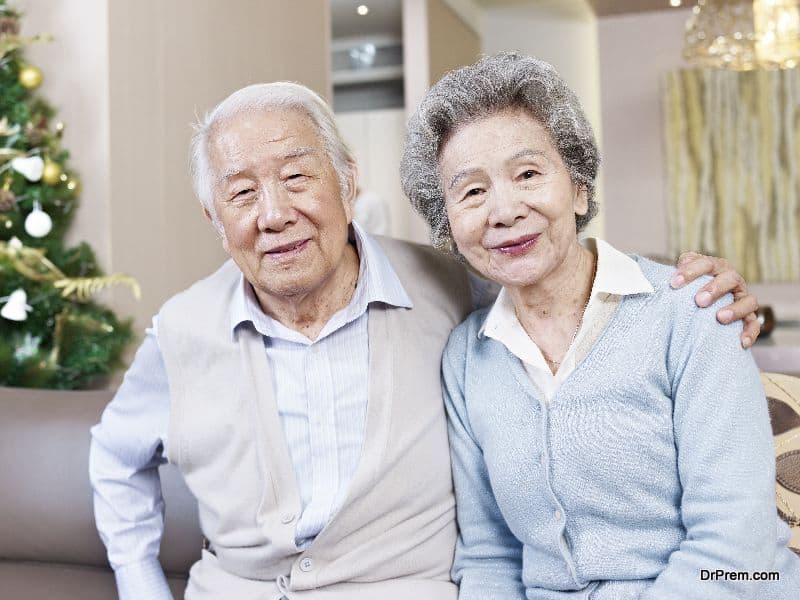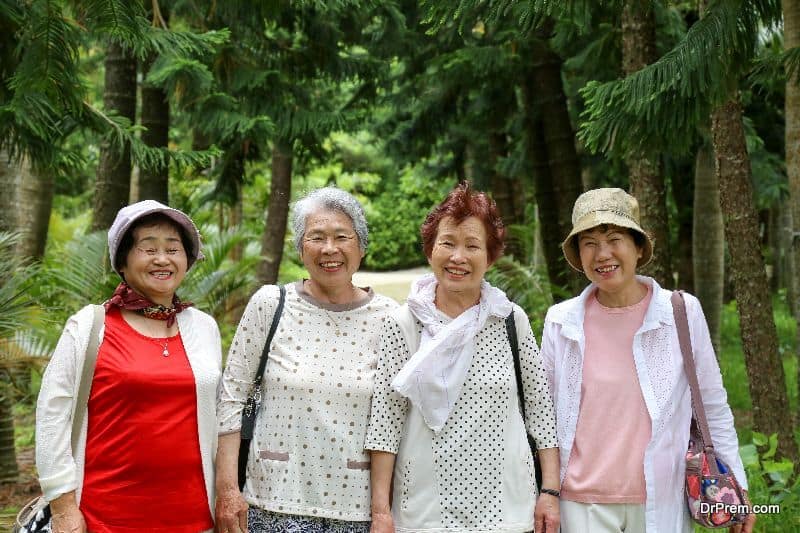According to WHO declaration, the Japanese have the highest life expectancy rate in the world followed by Korea. On an average, the Japanese can live for 83.7 years and on September’17 the number of Japanese nonagenarians touched 2 million for the first time.
Where does the US stand in life expectancy?

The research cannot be fully relied upon as it is based on data available in 2013. It missed considering unforeseen situations like epidemics and the effect of the possible repeal of Obamacare that would take another 20 million Americans out of healthcare coverage. All these are likely to affect the released calculations.
What makes Japanese outperform in terms of longevity?

Is it the diet, lifestyle or culture or a combination of everything? Let us explore.
Japanese diet:

The popular Okinawa diet originating from the island away from the mainland of Japan with striking differences in eating habits and customs can be another cause of the incredible longevity of the Japanese. Physicians acknowledge the food components like tofu, seaweed, konbu, squid and octopus drastically cut down the risk of stomach cancer and atherosclerosis.
On the flip side, high salt content and undercooked Japanese dishes can be disastrous for health. Sushi, for example, can increase the possibility of H. Pylori infection and may lead to the development of stomach cancer.
Obesity is rare in Japan compared to the abnormal obesity rate in the US. Maybe the healthy eating approach with restricted portion size of Japanese has helped them to prevent this disease which automatically lowers the risk of other life threatening diseases.
The healthy eating habits start at a very young age where Japanese schools strictly adhere to the dietary regulations. Healthy lunch plans are chalked out containing minimum amount of refined sugar.
Doesn’t that make sense in restricting obesity at a very young age where unrestricted consumption of sugar laden cakes, pastries, cookies and donuts are prevalent among children across the globe?
It is also important to note that 98% of Japanese kids either walk or cycle to school. This calorie burning habit remains till their adulthood enabling them to enjoy a much-extended lifespan. Japanese do not follow planned workouts or physical exercises but they are on the constant move by commuting in public transport, which the global urban population hardly opt for.
Healthcare system:

The system is impressive considering the fact that Japan’s healthcare system cost only 9.5% of the annual GDP compared to 16.4% of the same in the US. The country’s preventive measures also contributed to this extended longevity as the suicide rates dropped below 30,000 in 2012 for the first time since 1998.
Life extending genes:
Here the Japanese certainly have a better share of luck. Studies say, Japanese are gifted with DNA 5178 and ND2-237 Met genotype. The first type helps in resisting lifestyle ailments such as cerebrovascular disease, myocardial infarction and even Type 2 diabetes. The second type may also offer resistance to cardiovascular and cerebrovascular atherogenic diseases.
Social-cohesion:

Japanese lifestyle has downsides too as their obsession with work often leads to health disasters causing death. The country has sent an example in life expectancy, which other nations can also improve through lifestyle modifications.





